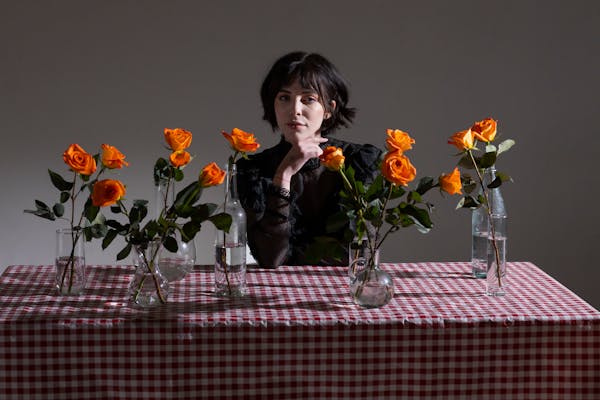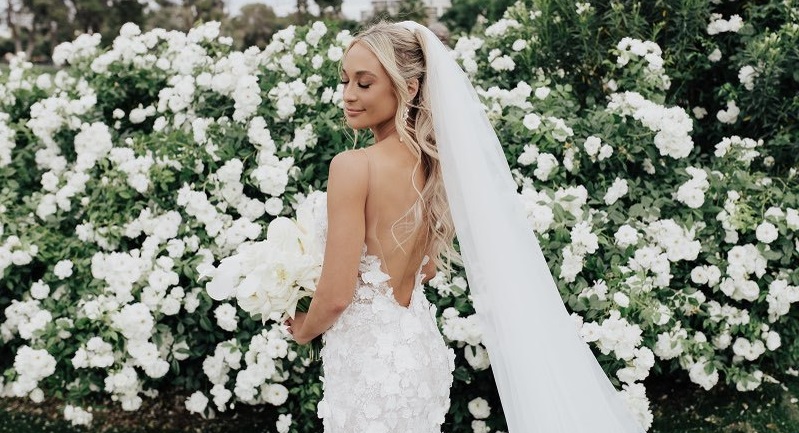Woman in arranged marriage reflects on colorism, misogyny in ‘Indian Matchmaking’
Ruchika Tulshyan was 22 when her mother started searching for her future husband. Eleven years later, the experiences she had with her arranged marriage led her to skeptically binge the Netflix reality show, “Indian Matchmaking,” featuring a cast of characters all looking to satisfy a cultural expectation that they put a ring on it.
And she has mixed feelings — happy to see her experiences represented but forced to reflect on some hard truths about the way women are objectified within the system.
“I actually found the show to be something that really did resonate with my experience,” Tulshyan, 33, said. “Unfortunately, it reinforces some of the very negative parts of India today. I was disappointed, of course, there’s colorism, there’s casteism, there’s a lot of emphasis on traditional beauty.”
“Indian Matchmaking” centers around Sima Taparia, a professional matchmaker from Mumbai, who travels the world helping young Indian singles find their ideal match. The show introduces us to a cast of Indian and Indian American men and women — including a single-minded lawyer from Houston, an appearance-obsessed jewelry designer from Mumbai and an outgoing dancer from New Jersey.
As a 22-year-old who had already finished grad school and was on track for a successful career, Tulshyan was shocked to hear that her mom had listed her name and photograph on an Indian matchmaking website without her consent. Not only had she found her a man whom she deemed suitable, but she had already begun talking to his parents about an engagement.
“Out of respect for my parents, I said, ‘All right, well, if you really want me to have a conversation with this person, I will,’ and I did,” she said. “Fast forward, we ended up getting married.”
To Tulshyan, who is a Signaporian of Indian descent, what Westerners know as “arranged marriage” was just considered the norm. She’s a feminist, and she says she recognizes the mysoginistic and heteronormative history behind the practice, but she also always knew that it was the path she would end up going down.
“I was definitely very hurt, very angry,” she said of finding out about her matrimonial profile. “At the same time, maybe there was a part of me that was resigned to this. I pretty much knew that that was going to be the way things would be for me.”
Tulshyan has now been married for nearly nine years, and she now lives with her husband and 4-year-old son in Seattle. She doesn’t regret her decision to get married, but she does recognize the problematic and uncomfortable elements that came with the process of meeting potential suitors.
The Netflix show is an unfiltered portrayal of the archaic structures that still surround marriages in India and for Indian families living in the U.S. “Tall, trim, and fair” is a set of terms heard frequently throughout the show — revealing a preference across the board for thin women with a lighter skin color. One mother even commented at the beginning of the show that she wouldn’t accept any woman below 5’3 for her son. Also casually glossed over by the matchmaker are families’ expectations that their child will be matched with someone of a high caste. Though discrimination based on this Hindu social hierarchy is now illegal, its influence is still pervasive in everyday life in India. It’s a system that, along with colonialism, has been used to prioritize lighter-skinned individuals.
Those who watched the show were quick to call this out.
“Anyway, yeah I watched it #indianmatchmaking. All I can say is that at least it conveyed how casteism, classism, colourism and son preference are still alive and kicking incase anyone thought otherwise,” one viewer tweeted.
I’ve never heard the word “biodata” used so much in one show.
Anyway, yeah I watched it #indianmatchmaking. All I can say is that at least it conveyed how casteism, classism, colourism and son preference are still alive and kicking incase anyone thought otherwise.
— Jaspreet Kaur (@behindthenetra) July 27, 2020
Tulshyan says she, like many women in the process of being arranged, was subject to similar misogynistic pressures.
“I’m 5’9″ and I was a size 8, so there was this belief that, ‘oh my gosh, you’re so big. It’ll be really hard for you to find someone,’” she said.
For these same reasons, a viral Twitter thread by someone who was forced into an arranged marriage system has gained traction in light of the show. Nikita Doval described extremely misogynistic and traumatic meetings with potential grooms and their families, including those in which the potential groom’s mother would openly ask things like, “Are you a virgin?”
“I was almost always not talking enough, or not fair enough or not demure enough or, in spite of degrees from liberal arts institutes that were the best in the country and the world, not “professionally qualified” enough,” Doval said.
I’ve been seeing a lot of jokes about the show on matchmaking and arranged marriages on Netflix and as someone who’s lived through this hell for most of her twenties, I’m here to tell you; it’s no joking matter 1/n
— nikita doval (@nikitadoval) July 19, 2020
Tulshyan also questions the way some of the women are portrayed in the show. Aparna, a lawyer from Houston who is portrayed as overly picky, difficult and uncompromising, has become a popular villain among viewers for her rejection of man after man.
“The feedback I got, especially from my aunties back home in Singapore, and even speaking with some of my friends in India, it was like, ‘Oh my God, she’s so terrible, she’s such a B word or whatever it is,” she said.
But having been through the process herself, Tulshyan says it’s important to be as strong, picky, and uncompromising as you can to push against a system that can often put down women.
“I actually think that we should all take some inspiration from being strong headed, from being specific and not wanting to settle for less,” she said. “When you put yourself second and everyone else first, you do get disappointed. You do get your heart broken, you are less likely to push back and have those important conversations, which I actually think are the foundation of a happy marriage, arranged or otherwise.”

Though she admits the system is inherently stacked against them, Tulshyan has advice for feminists who are opting to enter the arranged marriage arena.
“You really have to unlearn a lot of the things that society unfortunately has told you about the fact that your value and your worth is determined by marriage and children,” she said. “And it is worth listening to your gut.”





